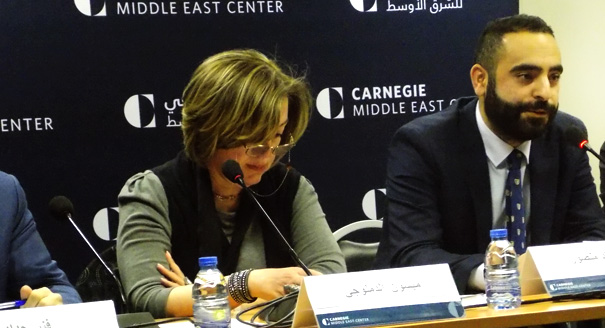Registration
You will receive an email confirming your registration.
Today, two-thirds of Iraqis think that their country is headed in the wrong direction, and party and leader favorability ratings are at all-time lows. In the south, an unprecedented number of Shia are protesting their own leadership’s inability to improve security conditions, address corruption, provide basic services like electricity, and tackle unemployment. Similarly, the Kurds in the north are protesting against Kurdish leaders. The political elite in Baghdad and Erbil are finding it increasingly difficult to make claims to speak on behalf of their constituents.
The Carnegie Middle East Center brought together a panel of Iraqi political leaders and scholars to discuss why Iraqis increasingly doubt that their political leaders represent their interests and to analyze the consequences of problems of representation and governance in Iraq. Carnegie's Renad Mansour moderated.
Maysoun al-Damaluji
Maysoun al-Damaluji is a member of the Iraqi parliament and women’s rights campaigner.
Yehia al-Kubaisi
Yehia al-Kubaisi is a consultant for the Iraqi Center for Strategic Studies
Fanar Haddad
Fanar Haddad is a research fellow in the Middle East Institute, National University of Singapore.
Faleh A. Jabar
Faleh A. Jabar is a political sociologist and the director of the Iraq Institute for Strategic Studies.
Renad Mansour
Renad Mansour is an El-Erian fellow at the Carnegie Middle East Center.
